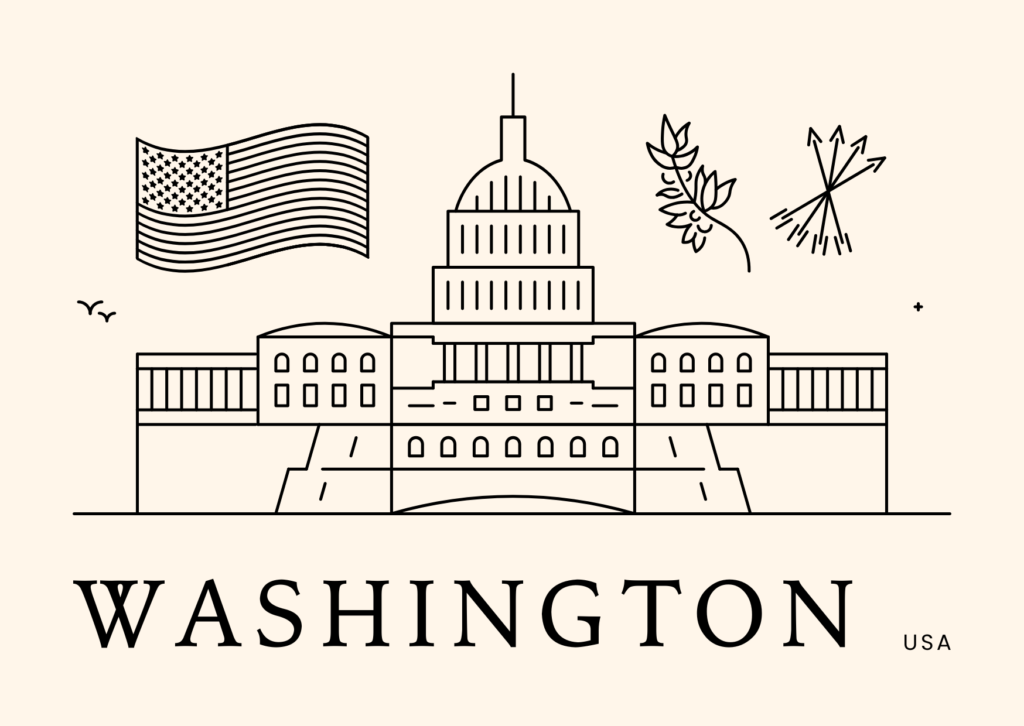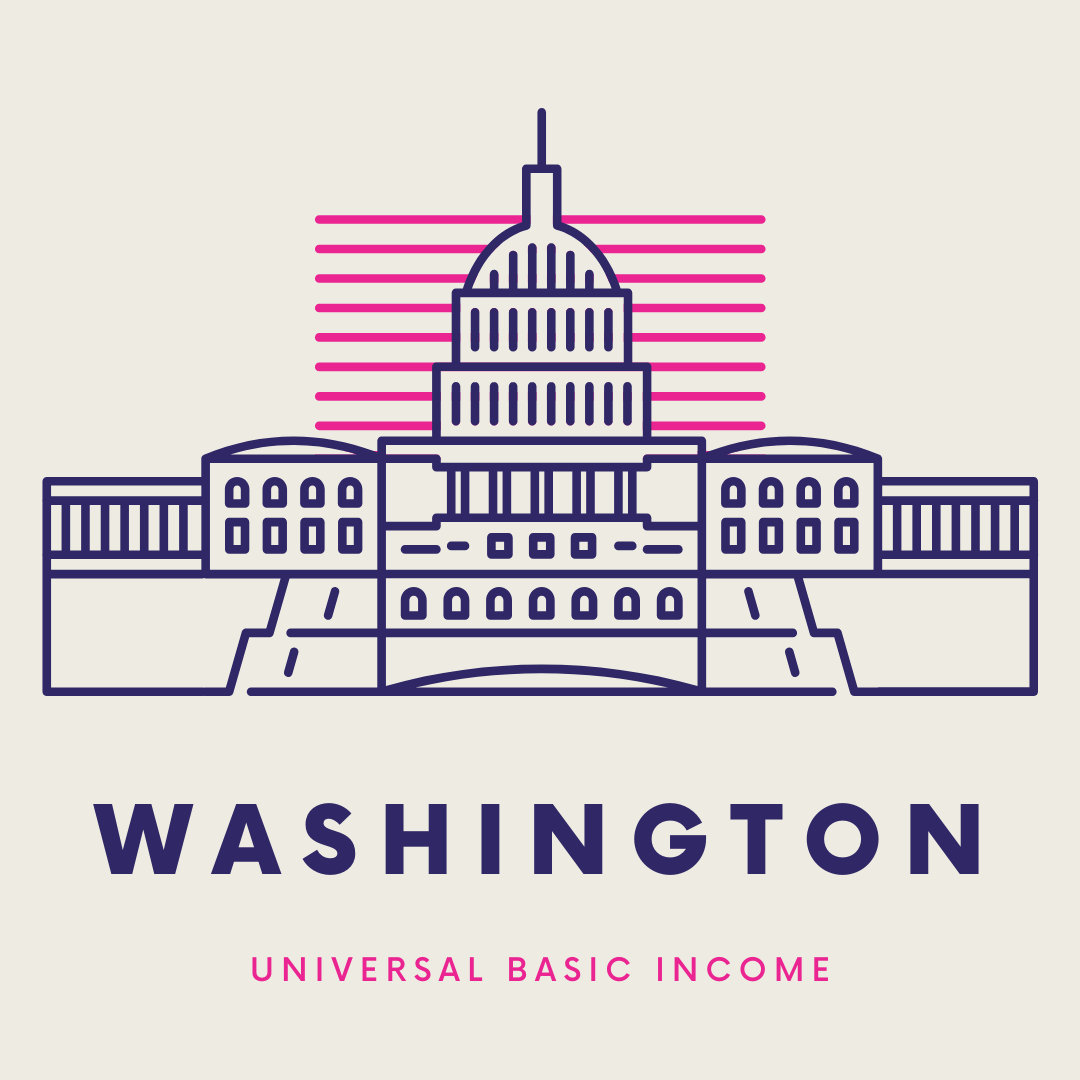UBI has emerged as one of the most critical buzzwords in contemporary discussions, undergoing some profoundly transformative changes. It holds promise to eliminate poverty and reduce socio-economic inequality at the same time as ensuring everyone attains economic security. In Washington State, an energetic discussion around UBI has opened up, with policymakers, advocates, and citizens exploring its feasibility.
Do you want to know more about UBI and how to apply for it in Washington? If that is the case, dive into this comprehensive guide that covers all aspects of UBI: understanding the program’s characteristics, benefits, application procedures, and prospects. However, it is also important to know that although UBI offers a lot of advantages, there are also disadvantages that should be weighed.
What Is Universal Basic Income (UBI)?

Universal Basic Income is defined as an allowance paid to everyone in the society without need for employment, qualification for application, or any charge fees. It ensures every person gets a fixed amount of money irrespective of the economic position of a poor and rich individual, which is a contrasting scenario from the regular welfare measures set up because they create thresholds on income for each of the receivers.
In the state of Washington, one potential avenue for evaluating UBI is its ability to mitigate poverty, unemployment, or broader economic challenges. Proponents assert that it will liberate individuals to engage in pursuits such as education, entrepreneurship, and personal growth; however, it simultaneously creates the imperative to meet their fundamental needs. Although some critics remain skeptical, the promise of UBI could reshape the economic landscape significantly.
UBI: A Global Perspective

Through pilot testing and ongoing debates, Universal Basic Income (UBI) has gained considerable attention (across the globe) as an (innovative) and radical approach to addressing economic inequality. It seeks to ensure that certain basic minimum standards of living are available to all individuals. Various pilot programs have been implemented, each tailored to the unique social and economic circumstances of specific countries, which allows for a rich array of insights. This, in turn, contributes to a broader understanding of the UBI discourse—particularly regarding the use of an extended UBI experiment in Finland, which provides a monthly stipend to unemployed citizens.
Although the effects on employment rates were relatively minimal, greater improvements were observed in mental health, reduced stress levels, and an overall increase in life satisfaction. However, these outcomes highlight the multifaceted nature of UBI’s impact on society, because it suggests that the benefits extend beyond mere financial support. But it is essential to consider the broader implications and potential challenges associated with implementing UBI on a larger scale.
Although the Ontario Basic Income Pilot in Canada was prematurely terminated, it reported that recipients exhibited a greater degree of financial autonomy, increased housing stability, and improved prospects for both self-directed and community-oriented development. For instance, Kenya’s ongoing program—one of the largest and longest-running experiments in Universal Basic Income (UBI)—has revealed significant reductions in poverty and economic disparity; this suggests that UBI could serve as a transformative tool for unit developing regions.
However, smaller-scale initiatives are currently occurring in nations like India, Brazil, and the US, emphasizing the versatility of UBI in tackling a diverse range of challenges (including rural poverty, urban unemployment, and external economic shocks). Because of this, in order to design a UBI model that effectively addresses specific local concerns—such as affordable housing, workplace disruptions, and income inequality—Washington state must study these global experiments. This approach will enhance the impact and sustainability of its programs, although it requires careful consideration and adaptation of successful strategies, but it is a necessary step forward.
- A two-year trial (conducted in Finland) yielded participants who reported enhanced mental health and life satisfaction.
- As part of the Ontario Basic Income Pilot, one witness in Canada discovered more evidence of such increased (financial) security and community engagement.
- Heavy poverty and income inequalities, however, were noted to be significantly reduced (because of) a long-term UBI initiative.
Washington State is harnessing the successes of global Universal Basic Income (UBI) experiments, adapting them to confront its distinctive economic and social challenges. One of the state’s most significant hurdles is housing affordability—especially in urban centers like Seattle—where rents and property prices are swiftly outpacing wage growth.
This situation leaves many individuals in a state of financial strain. By integrating UBI into the framework, Washington aspires to furnish residents with a dependable income to help cover rent or mortgage obligations; however, this could potentially reduce the risk of housing insecurity and homelessness. Furthermore, another pressing issue is healthcare access. Many Washingtonians are struggling with the exorbitant costs linked to medical care and insurance premiums. Although UBI might not resolve all these challenges, it could provide a means to alleviate some of these financial pressures.
The History and Evolution of UBI in Washington State
Early Discussions and Advocacy
Early discussions and advocacy are concerned with the initial conversations and activities undertaken to deal with a specific issue, usually social, political, or environmental. At this stage, the important people or groups begin raising awareness and building support and momentum for change. Such discussions can take place in community meetings, academic forums, or through the media.
Advocates will influence public opinion, shape policy, or start reforms by making the case using persuasive techniques and evidence. The aim of early advocacy is to set the foundation for bigger efforts involving broader networks, institutional support, and long-term commitment to real change. These early stages are critical in defining the direction and success of the cause, as they set the tone for future strategy and action.
Recent Developments
Over the last ten years, there has been a significant shift in universal basic income as it has transitioned from being solely discussion-based to something that has been brought to life in Washington. Among the crucial milestones are:
- 2016: Seattle is said to take a step ahead in development by analyzing the possible UBI and how it would influence changing its economy.
- 2018: A pilot program was introduced in Tacoma in which low-income families were allowed to receive monthly payments as a way to provide more stability to them financially.
- 2020: With the effect of the pandemic, UBI has proven quite useful in lifting the living standard of many. It has also attracted policymakers who take an interest in active cash transfer programs.
Why Washington State Is Leading the Charge on UBI
A Tradition of Progressive Policies
“A legacy of progressive policies” refers to a history of a certain group, organization, or government that is geared towards formulating policies with the overarching goal of ensuring social and environmental justice. This usually involves formulating policies aimed towards remedying the circumstances of disadvantaged communities, alleviating economic disparity, and working towards an inclusive economy.
As a progressive policy legacy, the focus could also be on ensuring impairment-related discrimination laws, offering universal basic health care, educational improvements, and other policies aimed towards climate alterations. Despite changing circumstances across history, these policies tend to persist, as they emphasize being equitable and ensuring social welfare.
This appeal is often premised on the understanding that there is a need to apply the armed to better people’s lives as well as promote a better and equal society. In that sense, it may include the fight for political driver reorganization geared towards the provision of sustainable over immediate benefits for societies.
Successful Pilot Programs
Several cities in Washington have implemented UBI pilot programs, yielding valuable insights:
- Tacoma: Respondents reported improved financial security, reduced stress, and greater opportunities for education and skill-building.
- Seattle: UBI experiments seem to point to reductions in housing instability and increased support for vulnerable populations.
Collaboration with Communities
Washington’s approach to UBI emphasizes collaboration with community organizations, ensuring programs address local needs effectively. By involving residents in the design and implementation process, policymakers can create more inclusive and impactful initiatives.
How to Apply for UBI in Washington State
In Washington State, UBI can be requested by joining certain pilot programs or city-driven initiatives; as UBI is not a state-wide initiative. Certain cities—Seattle and Tacoma, among others- have implemented localized UBI projects to see whether it can support low-income residents. Typically, people apply for such programs if they qualify under specific criteria, such as income, residency status, and whether the program focuses on a specific demographic group, such as single parents or communities of color.
The application process usually includes an online form or paper application, proof of residency, and proof of need through financial documentation. For more information on the application process, one can visit the official websites of these local government programs or community organizations managing the initiatives. Since UBI programs are still in pilot stages, it is essential to keep track of the status of new programs and changes in eligibility criteria.
1. Stay Informed
Pay attention to the local news for information from government agencies and advocacy groups such as Economic Security Washington, which announce new pilot programs and how to apply.
2. Understand Eligibility Criteria
Pilot programs may focus on a particular population group, including:
- Low-income households
- Single parents
- Individuals experiencing unemployment
Make sure you fit the bill of the program for which you apply.
3. Prepare Required Documentation
Common required documents are listed below:
- Proof of residency (utility bills, lease agreements)
- Identification (driver’s license, state ID, or passport)
- Income verification (pay stubs, tax returns)
4. Engage with Community Organizations
Apply through nonprofit agencies and local groups, who could help with paperwork and guide you throughout.
5. Participate in Feedback Sessions
Pilot schemes often need respondents’ opinions or feedback regarding efficiency. Providing that, you might add your grain in the formation of UBI into the state policy of Washington in the future.
The Economic and Social Impacts of UBI
Financial Stability
UBI provides a stable source of income, which can help the residents to meet the most basic needs, including housing, food, and healthcare. It reduces reliance on high-interest loans and credit card debt.
Stimulating Local Economies
Increased purchasing power, the recipients bring money to shop locally, spur local economic development, and create work.
Enhancing Mental Health and Well-Being
Research evidence indicates that money problems are amongst the leading causative factors in mental disorders. Generally, UB beneficiaries have claimed lower levels of stress as well as very good mental conditions with better wellness generally.
Promoting Innovation and Entrepreneurship
UBI encourages this culture of innovation and diversification of the economy, providing society with the option of being enough in financial capability to take on education or businesses or even other creative projects in order to support them.
Addressing Challenges and Criticisms
While UBI holds immense promise, it faces challenges:
- Funding: Implementing UBI requires substantial resources. Policymakers are exploring progressive taxation, reallocating budgets, and leveraging federal support.
- Public Opinion: Critics claim that UBI will disincentivize work. However, pilot programs repeatedly show that recipients use the income to better their circumstances.
- Integration with Existing Programs: Ensuring UBI complements rather than replaces current welfare systems is crucial for equitable implementation.
Leveraging Technology for Efficient Implementation
Washington is now considering the technological options, including blockchain and digital payment systems, to facilitate easier UBI distribution and improve transparency.
The Future of UBI in Washington State
Universal Basic Income in Washington State: Possibility, but Future Tied to Ongoing Debate and Testing. It is part of a larger national conversation regarding economic justice, wherein Washington has increasingly pursued UBI as a policy mechanism to solve the problem of income inequality, to ensure financial security, and as a support during times of economic disruption like robotics replacing jobs or the COVID-19 pandemic. Some cities within the state, such as Seattle and Tacoma, have launched pilots for UBI programs, which make a direct cash payment to low-income residents to assess poverty reduction, mental health, and overall community well-being.
Building a Sustainable Model
These strategies include:
- Public-private partnership
- Revenue from carbon taxes or other progressive levies
- Federal assistance and funding
By adopting a holistic approach, Washington aims at creating a model that will benefit the residents while ensuring long-term sustainability.
Why “Washington UBI” Should Matter to You
One such question is, “Why ‘Washington UBI’ Should Matter to You.” Universal Basic Income in Washington State can have far-reaching effects on all citizens, regardless of their socio-economic status. Primarily, UBI is set up directly to address economic inequality by providing an economic safety net that can support individuals in addressing their basic housing, food, and healthcare needs. UBI would give much-needed respite to the low-income family, gig economy workers, and others who cannot make ends meet in Washington, as the cost of living has drastically increased in recent years, especially in cities like Seattle.
Empowering Future Generations
UBI does not only benefit the current residents but also paves the way for a more just future. It fights systemic issues and, therefore, guarantees a brighter tomorrow for everyone.
Take Action Today
Universal Basic Income (UBI) in Washington State is no longer just a theoretical concept but has evolved into a movement that is steadily gaining momentum and attracting attention from a diverse array of stakeholders, including policymakers, social justice advocates, and residents who recognize the potential of UBI to address pressing issues like poverty, inequality, and job displacement. With ever-improving technologies in automation and artificial intelligence likely to disrupt the labor market, UBI offers proactive and innovative actions for securing economic stability among residents of a given jurisdiction without employment.
Ready to learn more and make a difference? Visit Future Forge to explore how UBI and other policies can shape a better future for Washington.










